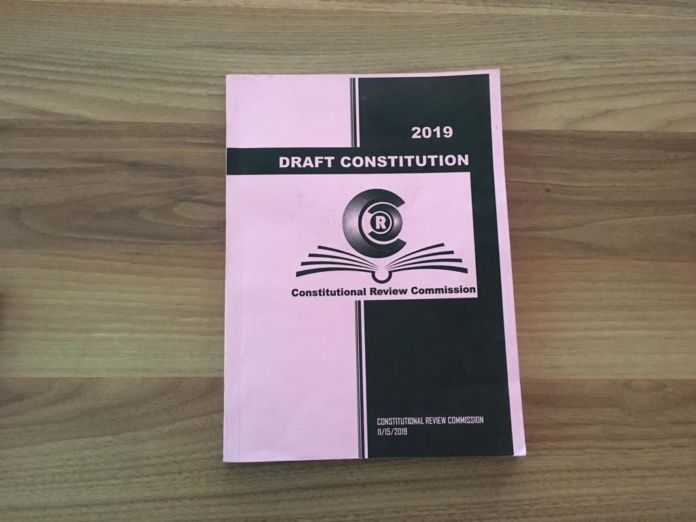In the summer of 2019, @KMC councilman, Kemo Bojang, had opined that The Gambia should pursue [and nurture] a system of ‘’democracy with Gambian characteristics’’. It came to be one of those memorable quotes of the year given the domestic political scene and trends in the region.
I thought it rather unfortunate that the media hadn’t picked on it unpack what that means with respect to Gambia’s socio-politico history. That disappoints. I trust seasoned observers on [Sene]Gambia society & politics will have understood what he was aiming at.
Unpack the scene
In the Arabic dialect, one of the major frustrations Muslim scholars contend with concern usage of the word Jihad. The term actually originates from the Arabic root word ‘Jahada’ – meaning, to struggle.
According to the renown Islamic preacher, Mufti Menk, anyone in doubt should consult scholarly experts on Jurisprudence before misinterpreting, misquoting sacred Quran text. Islam is a religion of peace, he continues, but there are many out there on social media spreading hateful vice contrary to the values Islam stood for:
Back in 2009, an official from the Vatican, Rome, had called on Muslim leaders & religious dignitaries, to apologise for Jihad. The uninformed church official made the call on assumptions of a dictionary definition of Jihad. The common mistake is the assumption that jihad means holy war – still taught in schools today.
So What does Jihad Mean?
Jihad in Islam, a Saudi scholar explains – When Allah (Almighty God) prescribe Jihad; that Jihad is an Arabic word literally means “Resistance”. It means to resist, and there is a list of things included to be resisted: First on that list is to resist against ones own inner desires. Second, is to resist against the temptations of “satan”. Third, which is the least one on the strength of resistance, is to resist enemies on the battlefield. Enemies here, according to the imam … refers to those who fight you on account of religion. To be clear, Islam is not a passive religion: Muslims are ordered to fight and defend their honour, defend their country against oppressors.
Allah SWT commanded in the Glorious Quran that, “fight (against) those who fight you.” But even where events came to that, the Muslim army was instructed not to transgress beyond limits .. not to harm non-combatants, women & children, nor of unnecessary destruction – international law governing rules of war adopted today.
The Glorious Quran has unequivocally declared the universal equality of all mankind, with emphasis on the sanctity of life. The rights of women is neatly defined, property rights, and of equality before the law. The Quran did warn against hypocrisy, and enjoin “sincerity” in all that one does.
The stress on ethics in leadership is well pronounced, thus paramount. One thousand, four-hundred years later (1,400), Islamic Jurisprudence has influenced policy making on nation-states around the world, as well as supranational at the United Nations.
In similar vein, the word ‘’secular’’ ought to be considered in context whenever apply in discourse circles. You probably have to turn back to ancient Greece or Victorian England examine the ramblings of clergy (church) and state (absolute monarchy) in terms of origin. In concept terms, secularism is the principle of the separation of government institutions and persons mandated to represent the state from religious institutions and religious dignitaries. Are the marabout-loving Gambian politicians able to oblige – your guess is as good as mine.
Secularism today, barely register political discourse in Europe or United States, preoccupied with politics of the ‘right’. Maybe, because, these countries bore overwhelming monolithic white “Christian” populations. Across Europe, churches are closing down in large numbers, hence the young generation either do not trust the “biblical” message, or had grown disillusioned with the church and what Christianity represent in their lives.
The divisions within Christianity itself are major, unable to unite on a single ‘book’ Bible. There is a sharp rise in atheism all across the Western world; and of the “religious” but in name only. Another sect of surprise is that of “Satanists”, devil cult on the dark side. Especially concerned by the proliferation of false prophets, doomsayers, tele-evangelists in it for the money – secularism gives you that too.
Gambian Muslims and Christians enjoys centuries old coexistence exemplified by tolerance & respect for the other. We should never lose sight of that. We have seen people shout barking mad of late – on both sides of the “secular” debate by the way – but have they sort to critically enquire about the type of Gambia we want; for our offspring???
Should we be concerned that outside forces are at play to sow seeds of doubt & enmity among the most peaceful Muslims and Christians to be found anywhere in the world? As a body, Gambian Christians are exemplary for the values it stood, demarcating church from state in its ritual congregational deliverance. Gambia: remember, all mankind originates from Adam: that anyone out there who tries to divide communities on ethnic/religious grounds should be rejected.
Having said that – I however disagree with parts of the country’s Christian-hood calling for insertion of ‘’secular’’ in the constitution. While their concerns are legitimate and real, I write mindful of the future in view of complexities technology imposes on societies. There is a danger importing harm imposing cultures that may injure or grandstand valuable [Sene]Gambia cultural values from stay.
As globalisation takes hold, with the destructive force of Facebook destabilising regimes, creating animosity in society – the institution of marriage is under severe strain – it is incumbent upon government to protect a solid social structure.
Religion, I’d argue, gives a solid base and grounding to a child. It addresses a rather physiological balance in terms of behaviour in the manner states relate in international affairs. The absence of that, in my view, may give rise to the invention of new burdens upon Gambian society losing itself on the big wide web.
For the National Interest
Gibril Saine




